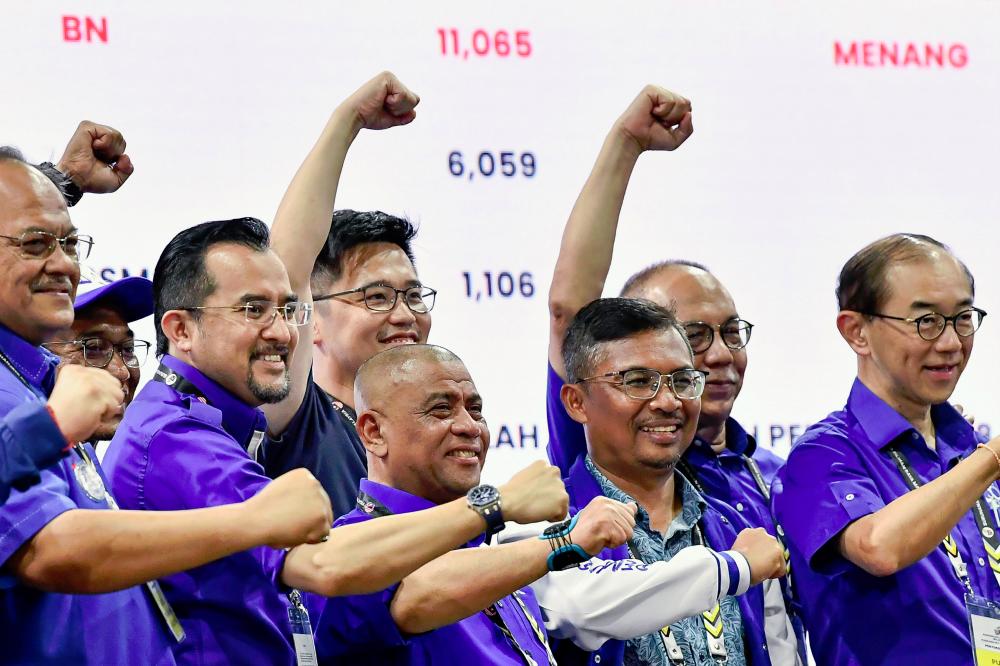PETALING JAYA: Barisan Nasional (BN) comfortably retained its Ayer Kuning seat in Saturday’s by-election, reinforcing its hold on the constituency. However, political analysts warn that the result underscores ongoing challenges, as both the ruling coalition and the opposition struggle to expand beyond their traditional support bases.
International Islamic University Malaysia political analyst and ISEAS–Yusof Ishak Institute fellow Assoc Prof Dr Syaza Shukri noted that Perikatan Nasional (PN) and Parti Sosialis Malaysia (PSM) appeared to have only maintained their 2022 voter bases, without making significant inroads.
“PN and PSM are holding onto their existing supporters. For PN, this could signal that the green wave may have peaked. They’ll need to rethink their strategy and develop a new narrative.”
Syaza added that BN’s victory indicated that voters were prioritising pragmatism and development-oriented leadership.
“I expected BN to retain the
seat because people are looking for practical solutions and tangible development.”
Universiti Malaysia Terengganu’s Prof Dr Mohd Izani Mohd Zain also pointed to strong cooperation between Pakatan Harapan (PH) and BN at the state level. He said: “Ayer Kuning has always been an Umno stronghold, and with support from PH voters, BN had the upper hand.”
He also emphasised that the
by-election was influenced more by local issues than national politics.
BN’s Dr Mohamad Yusri Bakir retained the seat with a 5,006-vote majority, securing 11,065 votes against PN’s
Abd Muhaimin Malek (6,059 votes) and PSM’s Bawani K.S. (1,106 votes).
Despite BN’s expected victory, analysts argued that the PH-BN alliance has yet to build strong grassroots momentum.
Universiti Teknologi Mara (UiTM) political analyst Dr Abdul Aziz Azizam said: “While BN’s victory reaffirmed Ayer Kuning as a traditional BN bastion, the cooperation between PH and BN has not yet sparked the level of voter enthusiasm projected from earlier trends.”
Analysts had expected the PH-BN alliance to secure around 68% of the vote, but this target fell short.
Abdul Aziz also pointed out that PN demonstrated consistent support throughout the contest, showing strong staying power. Meanwhile, he cautioned against underestimating PSM, which had made quiet, yet significant gains with a vote share exceeding 6%.
The outcome, he concluded, reflects an increasingly dynamic and competitive political landscape, with Malaysia’s democracy continuing to create space for smaller parties to build voter trust.









